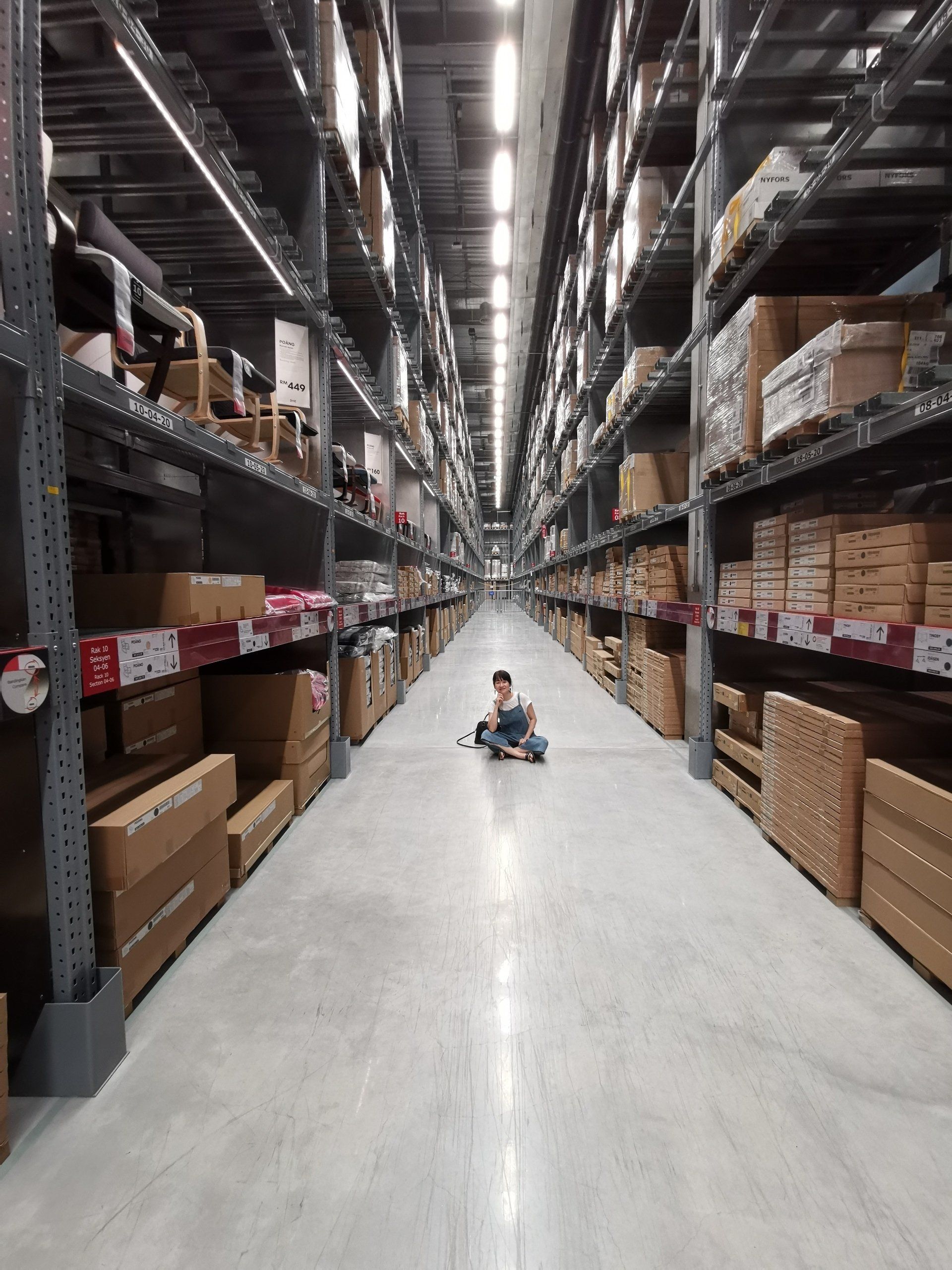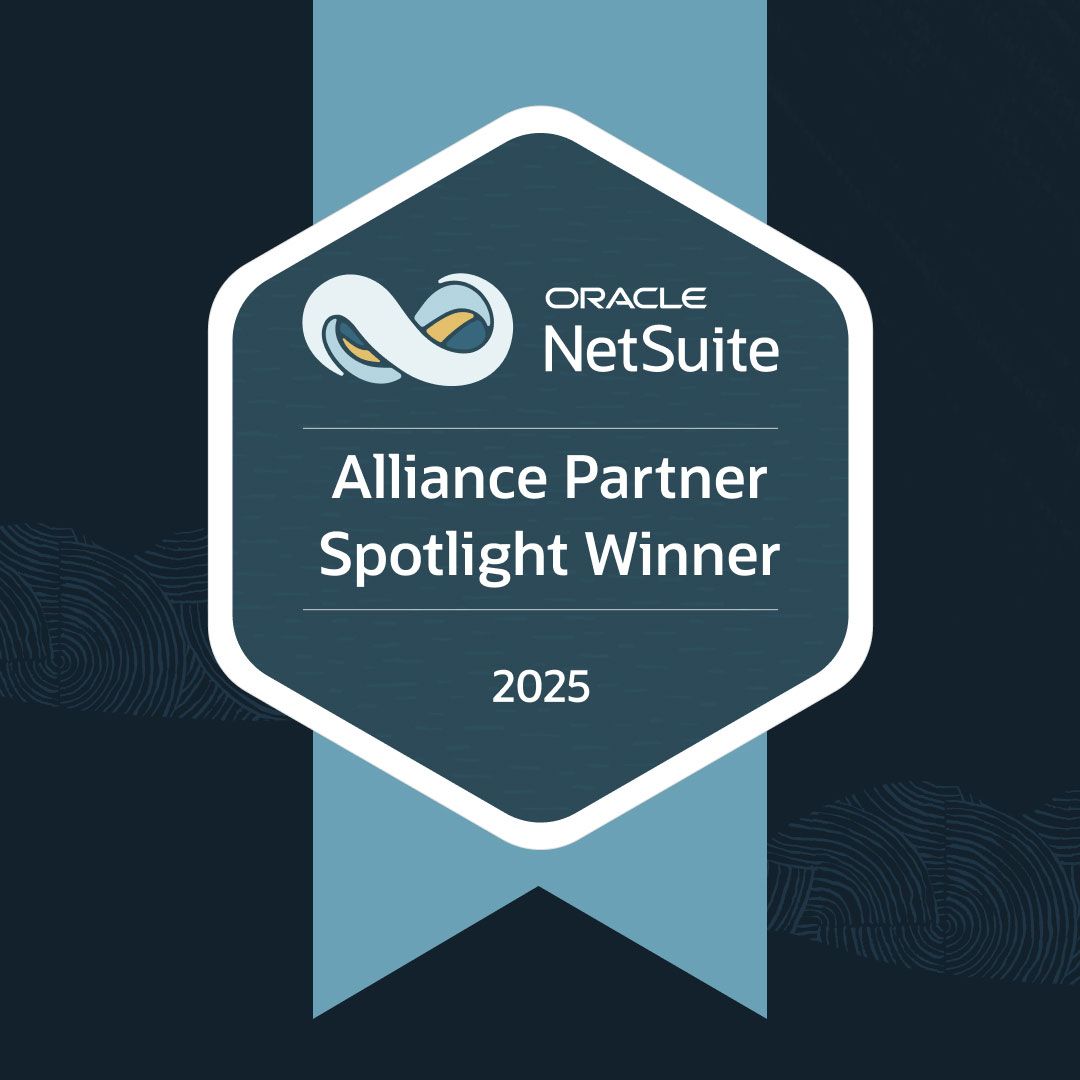How to Choose the Right Manufacturing ERP Software for Your Business: Key Features to Consider
An ERP platform can take your manufacturing business from a small operation to a global empire—if you find the right system.
If you lead a growing manufacturing company, you’ve probably put “Get an ERP” on your to-do list. According to ZipDo, the industry accounts for 25% of all enterprise resource planning (ERP) software installations. These platforms are popular in the industry because they consolidate a myriad of systems into one and store all inventory, production, and financial data in a single database.
So, deciding to implement an ERP may be easy, but choosing the right one for your company is not. Your business must find manufacturing ERP software that has all the features necessary to keep a complicated dance of operations moving and carries a price tag that won’t blow your budget. Plus, you must see positive reviews and proof of helpful customer support.
It’s a mammoth task you can’t afford to mess up, or you’ll end up with chaotic processes and wasted money.
We understand the immense burden an ERP search places on a company, and we want to help you make the right choice for your business. That’s why we’ve compiled a list of requirements every manufacturing company should look for when choosing an ERP system. We also include information about how NetSuite’s ERP version for manufacturers fulfills each need, in case you’re curious about the system.
SuiteDynamics works with NetSuite to customize and implement ERP software. Our experts can help examine your operations and determine the modules and features your company needs to boost efficiency and productivity. Schedule a free consultation with our team today to discover how well your operations could run.
Key Takeaways
- Pick the right sized ERP for your business: Get software that fits your business size. Small companies don’t need big, complex systems, while larger ones need scalable solutions for growth.
- Make sure it’s easy to use: Your ERP should be simple and user-friendly, with customizable dashboards that make sense to everyone, even non-tech people.
- Check integration capabilities: Ensure the ERP can connect with your existing software, hardware, and tools to avoid double entry and glitches.
- Look for industry-specific features: Choose an ERP designed for manufacturers with features like production planning, inventory management, and quality control.
- Prioritize data security: Make sure your ERP has strong security features like encryption and regular backups to protect sensitive info.
- Understand the costs: Know what you’re paying for. Check for hidden fees and whether the
- Decide on cloud vs. on-premise: Cloud systems offer flexibility and automatic updates, while on-premises give you more control but require IT management.
- Advanced project management: Choose an ERP with tools for tracking and tweaking production schedules to avoid delays and stay organized.
- Solid customer support: Make sure the ERP vendor offers reliable, 24/7 customer support that responds quickly and helps with troubleshooting.
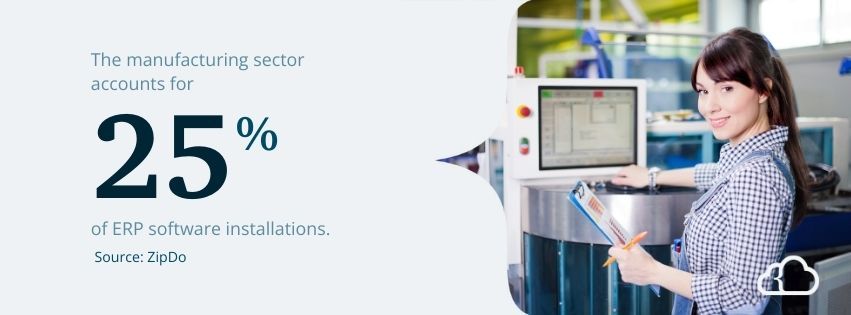
What to Look for in a Manufacturing ERP
The right manufacturing software should have a combination of industry-specific features, security, and usability.
1. Make Sure It Fits Your Business (Scalability)
First of all, manufacturing ERP software has to suit your business’s size. If you're small, you probably don’t need a complex, enterprise-level system with bells, whistles, and a giant price tag. However, if you're running a larger operation and plan to grow, you want software that can scale with you.
NetSuite’s Manufacturing ERP Software: NetSuite’s modular structure allows you to add or subtract modules and applications as your company evolves. Need to increase your shipping capabilities? Add the Ship Central SuiteApp. Going international? Switch to NetSuite OneWorld. The system can mold to your organization’s ever-changing needs.
2. Check for a User-Friendly Interface
No one wants to feel like they’re hacking into a government database just to record a transaction. Your ERP system must be easy to navigate, even for non-tech folks. Software is useless if your team can’t figure out how to use it.
Look for manufacturing ERP software that feels intuitive, with dashboards and reports that make sense the first time you see them. You get bonus points if the system is customizable because you can set it up in a way that works best for your team.
NetSuite’s Manufacturing ERP Software: NetSuite's interface has an intuitive design, so you can figure it out quickly, even if you’re not a tech expert. The dashboards are clean and customizable, meaning you can adjust them to show exactly what you need at a glance. Plus, everything is organized logically so you can find your way through different features and reports. This way, NetSuite keeps things simple, whether you’re managing inventory or checking production schedules.
3. Ensure Integration Capabilities
Any ERP you purchase must work with the software and tools already running your business. If you can’t connect them, you’ll suffer any number of infuriating issues, from double data entry to malfunctioning hardware. Therefore, make sure your ERP software can integrate with the following.
Software
If your business already uses other software—such as accounting systems, CRM tools, or even existing production management software—you must ensure the new ERP integrates with them.
An ERP's whole point is to combine processes into one system, so determine if the ERP you’re considering supports easy integration with items like your accounting software, supplier systems, or even your e-commerce platform. If you can achieve a seamless connection with the following, you’ll avoid entering the same data in multiple places.
Hardware
Manufacturing ERP software doesn’t just consolidate digital systems; it also connects with various tools that keep a business running smoothly. Before choosing a platform, determine how it will work with your warehouse management tools, such as barcode scanners and time clocks. The system should also integrate with weight scales to automatically record the correct shipping cost at the rate you negotiated with your carrier.
EDI/API
EDI (Electronic Data Interchange) and API (Application Programming Interface) integrations make everything run smoother and faster. With EDI, you can automatically exchange data like purchase orders or invoices with suppliers and customers, meaning no more manual entry. APIs let your ERP easily connect with other software, like your shipping system or accounting tools, so all your data flows seamlessly across platforms.
NetSuite’s Manufacturing ERP Software: NetSuite connects smoothly with all kinds of software, hardware, EDI, and APIs so that you can keep everything in sync without the hassle. For example, NetSuite not only connects to barcode scanners to ease inventory counting but also generates bar codes and item labels. It also supports seamless connections with various third-party systems and applications, such as SalesForce, HubSpot, Amazon, and more, and it offers customizable EDI and API integrations.
SuiteDynamics experts can help integrate any type of hardware or software into your NetSuite platform, so all your systems and tools work as a cohesive team. Learn more about your integration options during your free consultation.
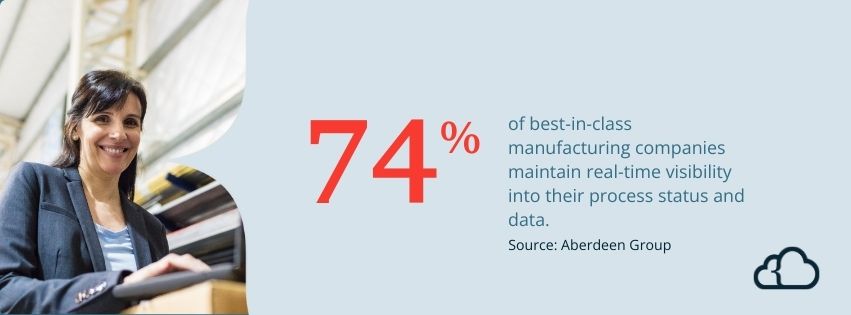
4. Look for Industry-Specific Features
ERP systems vary widely, and many platforms are geared toward certain industries. Some are designed specifically for manufacturers, so prioritize them in your search. Generic ERP systems might not offer all the features you need, or they could require awkward workarounds. You need an ERP that speaks the manufacturing language, with tools designed for tasks like:
- Production Planning and Scheduling: Make sure you can track your production processes from beginning to end.
- Inventory Management: Look for real-time stock updates and tools to manage your supply chain effectively. Aberdeen Group research reports that 74% of best-in-class manufacturing companies maintain real-time visibility into their process status and data.
- Quality Control: Ensure the system has built-in quality checks and compliance features that allow you to deliver top-notch products.
Don’t settle for manufacturing ERP software that’s “good enough.” You need a system that considers your industry requirements.
NetSuite’s Manufacturing ERP Software: NetSuite helps manage everything from inventory and supply chain to production planning and quality control. As a user, you can track raw materials, schedule production runs, and stay on top of deadlines. Plus, it has real-time insights, so you always know what’s happening with your shop floor and orders. It even handles work orders, assembly management, and demand planning, making your whole manufacturing process more efficient and stress-free.
5. Don’t Skimp on Data Security
Security is a huge deal for ERP systems because they contain sensitive information, such as financial data, supplier contracts, and production schedules—and cyberattacks happen all the time. The Identity Theft Resource Center reported that data compromises in 2023 increased 72% over the previous record set in 2021.
This looming threat means that whether you’re going with a cloud solution or keeping your ERP on-site, you still need a system with top-notch security features like data encryption, role-based access control, and regular backups.
Ask ERP vendors how their companies handle data breaches and whether their software meets industry security standards. Better safe than sorry.
NetSuite’s Manufacturing ERP Software: NetSuite prioritizes data security with features like encryption, role-based access, and regular backups. You can control who sees what information, ensuring sensitive data stays locked down. Plus, the platform’s cloud-based architecture is always updating and monitoring operations, so you don’t have to worry about breaches or downtime. That’s how NetSuite offers users peace of mind.
6. Understand What You’re Paying For
It’s time to talk money. ERP systems come in all price ranges, and sometimes, the cheapest option isn’t the best long-term deal. Dig deep to determine what’s included in the cost—are there hidden fees for upgrades, extra users, or customer support? Is the price a one-time payment, or is it subscription-based?
Look for a solution that fits your budget but also meets your needs. After all, you can buy a cheaper ERP, but it's still a waste of money if it doesn’t have all the features you need.
NetSuite’s Manufacturing ERP Software: NetSuite is a subscription-based service, so you pay a regular fee instead of a significant upfront cost. However, that fee can vary depending on your business size and the features you need. The price covers the software itself and its updates.
NetSuite may not be the cheapest option, but you get plenty for your money—like scalability, integrations, and cloud access. Plus, the system consists of modules from which you can pick and choose, so you only pay for what you actually use. It’s a solid investment that pays off as your business grows.
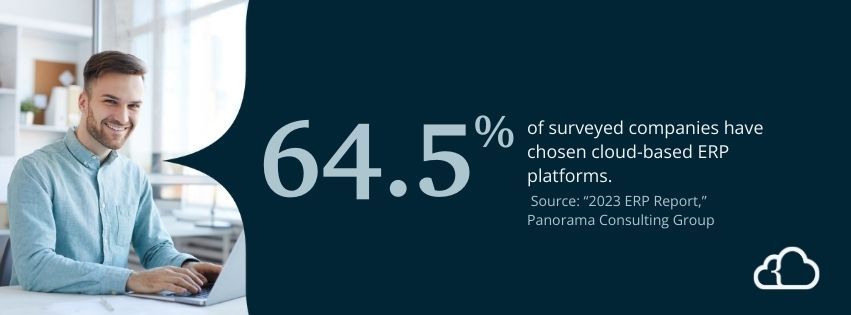
7. Choose What’s Right for You: Cloud vs. On-Premise
One of your biggest decisions will be whether to pursue cloud-based or on-premises software. There’s no right or wrong answer, but the choice comes down to your business needs and preferences.
- Cloud ERP: It’s accessible from anywhere, updates automatically, and doesn’t require managing your own servers. Plus, it’s typically more affordable upfront.
- On-Premises ERP: You own it, you control it, and you’re not relying on anyone else’s servers. Still, you’ll need a solid IT team to keep everything running smoothly.
If you don’t mind a subscription fee and love the idea of accessing your system from home, a cloud ERP could be the way to go. In fact, more and more businesses are preferring the flexibility found in the cloud. According to Panorama Consulting Group’s “2023 ERP Report,” 64.5% of surveyed companies have chosen this option.
However, on-premises might be better if you like having complete control and want your data stored locally.
NetSuite’s Manufacturing ERP Software: NetSuite's cloud architecture offers high levels of flexibility and accessibility. You can log on from anywhere—in the office, at home, or on the go. You also don’t need to worry about expensive hardware or IT maintenance since the platform is hosted online. Plus, the system updates automatically, so you always have the latest features without downtime. It’s secure, scalable, and saves a ton of headaches, making it perfect for growing businesses.
8. Explore Advanced Project Management for Production Scheduling
Advanced project management helps you plan, track, and tweak production processes to stay on schedule, avoid bottlenecks, and use your resources wisely. Without it, you're flying blind, guessing at timelines, and juggling tasks manually. This disorganization will just cause delays and waste time. Advanced project management allows you to store and review all your data in one place, adjust quickly when things change, and keep production running.
NetSuite’s Manufacturing ERP Software: Advanced Project Management helps plan, organize, and manage all the steps in the production process so you know exactly what’s happening and when. You can easily schedule tasks, monitor deadlines, and adjust when issues pop up. It’s like having a roadmap for your entire production. Plus, it gives you real-time updates, so you always have the information you need to make quick decisions.
9. Check for Solid Customer Support
ERP software isn’t a "set it and forget it" kind of tool. You’ll probably need help with implementation, customization, or just day-to-day troubleshooting. Examine the vendor’s customer support and determine the following:
- Do they offer 24/7 assistance?
- Is support included in the price, or do you pay extra for it?
- Are they quick to respond?
Pro tip: Read reviews or talk to current users about their experiences with the support team. Bad support can turn a decent ERP system into a nightmare.
NetSuite’s Manufacturing ERP Software: NetSuite implementation partners, like SuiteDynamics, help implement and customize the platform, and they often assist with issues after go-live. At SuiteDynamics, for example, we offer Managed Service packages that contain a set number of hours each month you can use for additional customizations, system fixes, training, and more. We’re your experts on retainer, ensuring you get the most out of your NetSuite investment.
Schedule a free consultation to discuss our packages and how they can help your company enjoy NetSuite success.
Discover NetSuite's Manufacturing ERP Software
Choosing the right manufacturing ERP software isn’t something you want to rush, so take your time, schedule demos, and ask questions. The right system will simplify your life, streamline your operations, and help your business grow.
We don’t want your company to get stuck with a system that makes your operations even harder to manage. Schedule a consultation with our team today to learn more about NetSuite and discover whether it’s the right platform for your company.
Above all, we want you to experience ERP success.
We pull information from NetSuite material, SuiteDynamics experts, and other reliable sources to compose our blog posts and educational pieces. We ensure they are as accurate as possible at the time of writing. However, software evolves quickly, and although we work to maintain these posts, some details may fall out of date. Contact SuiteDynamics experts for the latest information on NetSuite ERP systems.
Part of this text was generated using GPT-3, OpenAI’s large-scale language-generation model. After generating the draft language, our team edited, revised, and fact-checked it to ensure readability and accuracy. SuiteDynamics is ultimately responsible for the content of this blog post.


